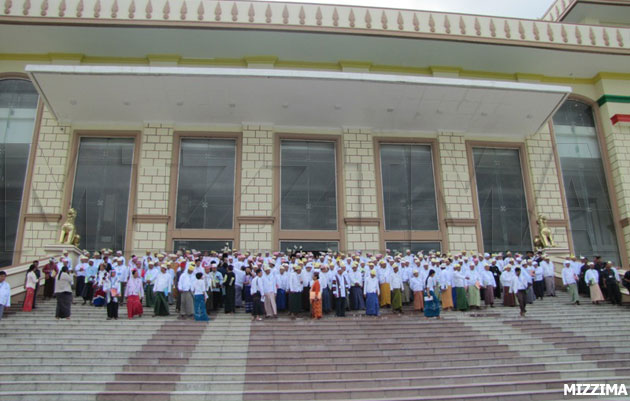President Thein Sein wants to make Burma’s Foreign Investment Law more open to investors and his office has been working to convince lawmakers to remove dozens of restrictions, according to wire reports. The law could be approved this week.

The law has undergone debate and extensive revisions for five months, and it is still not clear if it will achieve passage this legislative session, which ends this month.
Ninety-four changes were introduced by the Lower House, ostensibly to help domestic small and medium-sized enterprises compete.
New requirements call for up to $8 million in start-up capital and barriers for foreign joint ventures in 13 restricted sectors, say officials with ties to the president’s office.
Since the suspension of most Western sanctions, most foreign firms are awaiting the passage of the law before committing large sums to Burmese businesses.
Coca-Cola Co, Yamaha, General Electric, hotelier Marriott International Inc, automakers Suzuki Motor Corp and Ford Motor Co and tech firms Panasonic Corp and Toshiba Corp have expressed interest in entering Burma’s market.
The overhaul of the law puts restrictions on 13 sectors, limiting foreign firms to a maximum 49 per cent investment. The restricted sectors include manufacturing, farming, agriculture and fisheries.
The revised, proposed law would require foreign firms to put up between $5 million and $8 million in start-up capital for a 35-49 per cent stake in joint ventures with a Burmese partner, said sources.
Sean Turnell, an expert on Burma’s economy at Australia's Macquarie University, said the draft's changes represented a backlash to the reform process by entrenched vested interests, which had prevailed in some other post-transition countries.
“Instead of moving to a more liberal economic environment, some within the country seem to be pushing towards an outcome that could see the effective 'oligarchization' of Burma's economy,” he said.
In consultation with his advisers, Thein Sein had urged a more "flexible" approach. That would include dropping the $5 million start-up capital requirement and increasing foreign shares in joint ventures in the restricted sectors, a source said on the condition of anonymity.
Changes to the draft legislation, which initially allowed 100 per cent investments by foreigners in any sector, followed a June 30 meeting in Rangoon between Lower House Speaker Shwe Mann and Rangoon businessmen who urged an immediate review of the law, Reuters news agency said.
According to parliamentary sources, lower house members discussed the bill with local businesses between July 6 and 11 and then asked the Upper House to send it back. The bill was returned to the Upper House recently with 94 points for amendment, which included the new restrictions.


